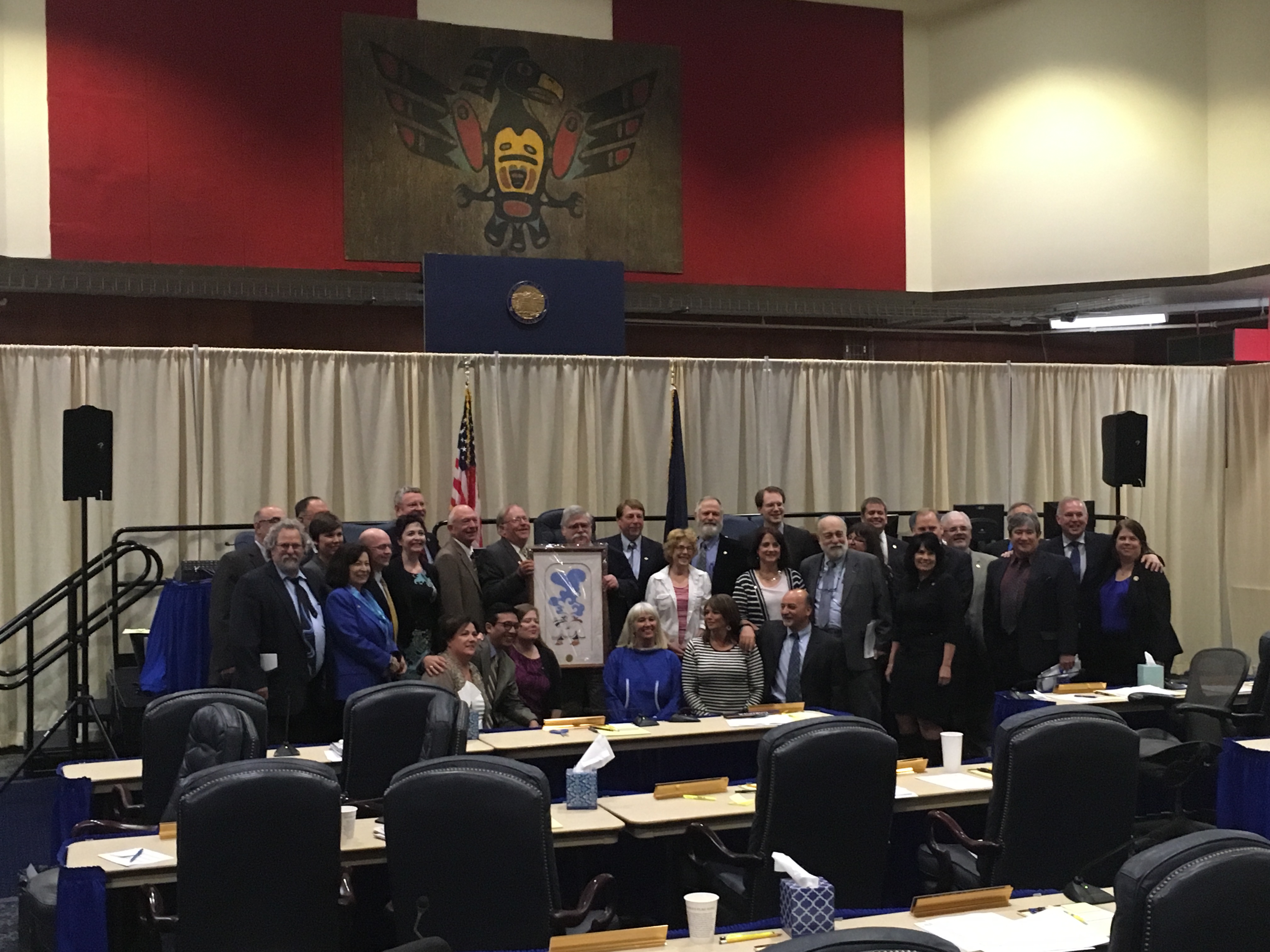After 148 days in Juneau, the Alaska House of Representatives has ended its work, but lawmakers are expected to soon be back on the job under orders from Gov. Bill Walker.
The House adjourned itself at 8:51 p.m. Saturday without voting on any significant new revenue measures to address Alaska’s crippling budget deficit.
“We do have to come back and do our work. It’s just a matter of when the governor calls us back,” said Rep. Sam Kito III, D-Juneau, shortly after the final gavel fell.
While the Legislature has cut millions of dollars from the budget, the deficit in next year’s budget is still $3.2 billion. Unless tax increases or spending from the Permanent Fund fills some of that deficit, it will be paid with the state’s savings accounts.
Walker proposed a 13-point plan to address the deficit, but on Friday the House Finance Committee turned down Senate Bill 128, the core of that 13-point plan, in a 5-6 vote.
[House kills Permanent Fund plan]
SB 128 proposed diverting a portion of the Permanent Fund each year to fund government operations, but it would cut the Permanent Fund Dividend in the process, and Alaskans loudly objected. Many lawmakers listened to those objections and blocked the bill.
The House also failed to vote on any tax increase proposed by Walker or any legislator. The only revenue-increasing measure passed by the Legislature this year was a bill increasing the fees for many hunting and fishing licenses and tags. That measure, expected to bring in roughly $9 million per year to the state, was proposed by Rep. David Talerico, R-Healy.
[Walker’s 13-point deficit plan falters]
Since the start of the year, the Legislature has worked for 121 regular-session days and 27 special-session days.
Though the House has adjourned, the Senate remains in session and is scheduled to meet Sunday to begin considering two pieces of legislation passed by the House before its adjournment.
Walker has previously warned lawmakers that he would call them into a second special session unless they acted on the deficit, but on Saturday night, he did not immediately say when that special session will take place.
“I am deeply disappointed that, after more than a year of conversations with Alaskans and more than 400 meetings with legislators about our fiscal problems, SB 128, a critical piece of legislation for Alaska’s future, never made it to the House floor for a vote,” Walker said in a prepared statement. “With a $4 billion deficit, it is time we pull together as Alaskans to address this fiscal deficit now.”
“See you Wednesday,” joked Rep. Tammie Wilson, R-North Pole, after the House’s final gavel.
Other lawmakers said they expect to be back at work in Juneau soon after the July 4 holiday weekend.
Walker spokeswoman Grace Jang said by email that the governor will decide the time of the next special session on Sunday or after the Senate adjourns.
The Senate is not expected to end its business until it votes upon House Bill 4002 and House Bill 246.
The former bill, which passed the House in a 34-0 vote shortly before adjournment Saturday evening, calls for 10 years of medical benefits for the spouses and children of police and firefighters who are killed in the line of duty. The children must not be older than 19, or 23 if they are still attending college. The benefits cover any peace officer or firefighter who is a member of the Public Employees Retirement System. This includes many municipal officers, corrections officers and some volunteer firefighters statewide.
The latter bill, which passed the House 30-6 on Friday, sets up an oil and gas infrastructure loan program under the state-owned Alaska Industrial Development and Export Authority. If the bill is approved by the Senate, drilling companies would be allowed to apply for low-interest loans as a subsidy instead of using the state’s controversial tax-credit incentive program.

